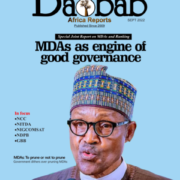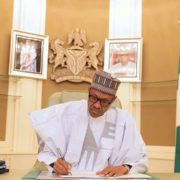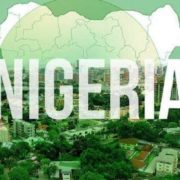Africa and Russia are planning to cooperate more closely in the higher education and scientific research spheres, including formulating joint research and educational projects in nuclear, space and digital technologies along with artificial intelligence, networking among Russian and African universities and enhancing student and academic mobility.
The plan was outlined in a declaration that was adopted at the second Russia-Africa Economic and Humanitarian Forum: For peace, security and development held in St Petersburg, Russia from 27 to 28 July.
This summit marked the second event of its kind. The first one was held in Russia in 2019 and is part of ongoing efforts by Russia to increase its geopolitical influence amid anti-European and anti-United States sentiment in many parts of the continent.
The near absence of Russian foreign direct investment in Africa highlights its reliance on other tools to exert influence, including cooperation with countries in the education sphere.
Is the HE plan only about geopolitical influence?
From some quarters within the academic community there is concern that the higher education plan is little more than an attempt by Russia to counter the influence of China, countries that form part of the European Union (EU), and the United States in Africa.
Professor Kwadwo Appiagyei-Atua of the school of law at the University of Ghana told University World News that the Africa-Russia higher education plan is a revisitation of “the Soviet cultural offensive” launched in the 1960s for the “Sovietisation of Africa as an ideological and geopolitical tool to counter Western imperialism”.
“At present, higher education in Africa is going through many challenges which have provoked [it] to resort to marketisation, managerialism and attempts to commodify knowledge through reform activities by the Bretton Woods institutions, including the International Monetary Fund and the World Bank,” Appiagyei-Atua said.
“Also, reliance on internationalisation programmes between Western and African universities has not helped as the relationship is structured and executed in ways that reflect legacies of colonial expansion. African countries are very likely to be attracted to this bait and swallow it – hook, line and sinker.
“It is going to lead to a realignment of states to the various geopolitical interests in a new Cold War which is resulting in the creation of a tri-polar world,” Appiagyei-Atua predicted.
“The impact will be an exacerbation and provocation of a crisis for respect for democratic principles and human rights which will have a negative impact on academic freedom and the pursuit of the freedom of science in Africa,” he stressed.
“The solution lies in Africa developing agency in international relations and a clear-cut foreign policy through the African Union, which does not pander to the foreign policy objectives of the big powers,” Appiagyei-Atua concluded.
Echoing Appiagyei-Atua’s view, Magdi Tawfik Abdelhamid, a professor at Egypt’s National Research Centre in Cairo, told University World News that “African universities and higher education institutions along with students and academic communities must only focus on achieving sustainable development in their societies and not [get] dragged into acting as a tool for supporting the political, cultural and economic agenda of any foreign country”, or be “part of a proxy war for achieving the strategic interests of any of the great powers”.
What is the plan about?
Speaking at the summit, Vladimir Putin, president of the Russian Federation, indicated a few focus areas for Russia in its relationship with Africa.
“Nearly 35,000 African students are studying at Russian universities, and this number is growing every year. The quota for African students financed from the federal budget has increased by 150% over the past three years and will exceed 4,700 people in the next academic year,” said Putin. He added that about 10,000 Africans are currently being trained in medical specialities in Russia.
“We plan to open branches of the leading Russian universities in Africa. Close ties are being developed with African educational institutions within the framework of the Russian-African Network University. An agreement on the establishment of the Russian-African consortium of technical universities … was signed ahead of this summit. It provides for the joint training of professionals for the mineral resources sector,” he said.
“We will continue to help our African friends develop not only the system of higher education but also general and vocational schools, train teachers, mentors and technical personnel for schools and colleges, as well as establish joint schools for which adapted teaching aids based on a combination of Russian and African national education programmes are being prepared. We propose considering the possibility of opening schools in Africa with a series of subjects taught in Russian.”
Putin invited African countries to join in a broader effort to advance Russian as a language and Russian culture. A project has been launched in 28 countries to create open education centres to train teachers and educators of children’s preschool institutions, as well as primary and secondary schools.
“In order to do this, we are planning to significantly increase the enrolment of African students in Russian pedagogical universities,” he said.
Implementation already under way
The implementation of certain projects in this regard has already begun. One example is the Russian-African consortium of technical universities, known as the ‘Subsoil of Africa’ project, which involves joint training of specialists for the mineral resources complex.
The list of Russian universities that will participate in the project and those African states where their branches will be opened will be announced later this year. There is a high possibility that among the Russian participants will be the universities of Moscow and St Petersburg.
So far, their representatives have welcomed the new initiative.
Victoria Panova, deputy head of the Russian Higher School of Economics (HSE), one of Russia’s most prestigious universities, considers the new initiative as timely and important.
“I think that in general, expanding social and humanitarian cooperation with African countries is very important, and especially in the field of education and science.
“Today Africa is a dynamically developing region with the youngest population in the world. The intensification of efforts to promote Russian higher education in African countries will allow Russia to enter the largest markets where high-quality world-class educational products are in demand,” she said.
‘Mutually beneficial’ terms
“It is also important to note that the approaches of Russian universities for cooperation are fundamentally different from the approaches of their Western rivals. We interact with African partners on mutually beneficial terms and on the basis of respect for each other’s interests,” said Panova.
HSE already has a reputation for being one of the leading Russian centres for African studies, according to Panova.
“For example, on the eve of the Russia-Africa Summit, the HSE presented a large-scale study, ‘Africa 2023: Opportunities and risks’, dedicated to the political, economic and social aspects of the development of the continent.”
Panova said university experts regularly travel to African countries to conduct research.
“A few days ago, a scientific expedition ended, during which our researchers visited Ghana and Liberia. This autumn, the Higher School of Economics will host the BRICS+ International School with the participation of young African leaders. Of course, we intend to expand cooperation with African partners, and we are currently working on the optimal formats for the university’s presence on the continent,” she said.
The number of students from Africa studying at HSE increased by 20% in the 2022-2023 academic year. Representatives of more than 30 African countries currently study at the university.
Representatives of other leading Russian universities have also expressed their support for expansion into the African continent.
For example, Alexander Trufanov, vice-rector for youth policy and information at the Perm Polytechnic University (PPU), one of the leading technical universities in Eastern Russia said a further increase in the number of students from Africa will be one of the priorities of the university in the years to come.
“Increasing the share of foreign students from African countries is one of our priorities. We see our advantage in the practice-oriented training of engineering personnel based on the needs of the market. First of all, we are interested in developing cooperation with Egypt, the Republic of Algeria, the Republic of Zimbabwe, the Republic of Uganda, the Republic of Senegal and the Republic of the Congo (Brazzaville),” said Trufanov.
“While in the near future, the university does not plan to establish its own branch on the African continent, it will work on creating a network of basic engineering classes in cooperation with some secondary educational institutions in African countries,” he said.
Trufanov said the establishment of such an ‘ecosystem’ was aimed primarily at high-quality career guidance work with African schoolchildren and allowed for “a full cycle of end-to-end training for future engineers: from school to university education and their further employment in their specialty”.
He added: “Students will be able to get to know the science and areas of PPU training more closely, as well as learn the Russian language, culture, traditions and values of Russia. This will ensure the training of highly qualified specialists and will achieve positive effects in terms of developing the human potential of the partner countries.”
Systemic strategic cooperation
Speaking to University World News, Victor Koksharov, the rector of the Ural Federal University and a panelist at the summit session entitled “Russia and Africa: Prospects for the development of inter-university cooperation”, said: “The development of scientific and educational cooperation between Russian and African universities is a significant part of the systemic strategic cooperation between Russia and African countries.
“The principles on which our relations are based are the principles of mutual respect, trust and common interest. Russian universities are guided by the understanding of training personnel for science, education, industry and management in the interests of African countries,” Koksharov added.
“At the Russia-Africa Summit II, a vision of opportunities for the development of scientific and educational cooperation was presented,” Koksharov noted.
“These are the organisation of joint competitions of scientific and technical projects, an increase in the number of [students] … from Africa and possible application of the grant system, development of Russian language studies, inter-connection of professional training, scientific initiatives and implementation of investment projects of Russian business on the African continent.
“We also see great prospects in the realisation of the Russian-African University and other educational institutions linking inter-university associations of Russia and Africa,” he said.
Sergey Kostelyanets, the head of the Centre for Sociological and Political Sciences Studies at the Institute for African Studies of the Russian Academy of Sciences, said: “The Africa-Russia higher education plan could help to support the Russian political, cultural and economic agenda in Africa along with strengthening the development of the International Russophile Movement in Africa and promoting the study of Russian history, culture and language as a soft power response to the West’s campaign of Russophobia.”
Support for plan, but also caution
Professor Atta-ur-Rahman told University World News that the Russia-Africa plan will face competition from China and European Union countries who realise the huge potential of Africa in various spheres of socio-economic development. He is the UNESCO Science Prize laureate and former coordinator general of the Standing Committee on Scientific and Technological Cooperation of the 57 member states of the Organisation of Islamic Cooperation, which has 22 African member countries.
“African nations have been hugely exploited by the West because of their vast natural resources but have benefited little as the funds have ended up in illegal foreign bank accounts of corrupt African leaders,” Atta-ur-Rahman pointed out.
For him, the Russia-Africa initiative must be a part of such a strong vision and strategy for socio-economic development.
“This requires the existence of technologically competent and visionary leaderships in African countries, without which it cannot succeed. The success of the Africa-Russia higher education plan will also depend on how carefully tailored it is to the needs of each African nation, and the quality of the Russian faculty involved in the plan along with the usefulness of the materials offered in terms of relevance and quality,” Atta-ur-Rahman explained.
“The focus, therefore, should be on faculty development so that the PhD faculty-to-student ratio in universities is brought to about 1:20, strengthening of undergraduate level teaching and development of centres of excellence in advanced agriculture, information technology, industrial biotechnology, engineering, mineral extraction and processing, and development economics,” Atta-ur-Rahman said.
“The Russia-Africa collaboration plan should aim to close the poverty gap by helping African states to migrate to strong knowledge economies by providing quality higher education with strong focus on the indigenous manufacture and export of high-technology, value-added products,” Atta-ur-Rahman said.
Professor Juma Shabani, the director of the doctoral school at the University of Burundi and the former director of development, coordination and monitoring of UNESCO programmes with a special focus on Africa, told University World News that the potential challenge for the Africa-Russia higher education plan is the lack of technology infrastructure to provide African countries adequate access to the expertise and online resources available in Russia.
“African countries should invest now in improving their researchers’ access to broadband internet systems,” Shabani suggested.
Shabani said he would like to see the Russia-Africa plan for higher education cover mainly joint doctoral training and research programmes implemented in hybrid mode.
“The programme should include short visits to Russia and Africa to benefit from specialised laboratories and other research sites, and the use of appropriate technological platforms to facilitate the conduct of online research,” he said.
Courtesy: University World News





















